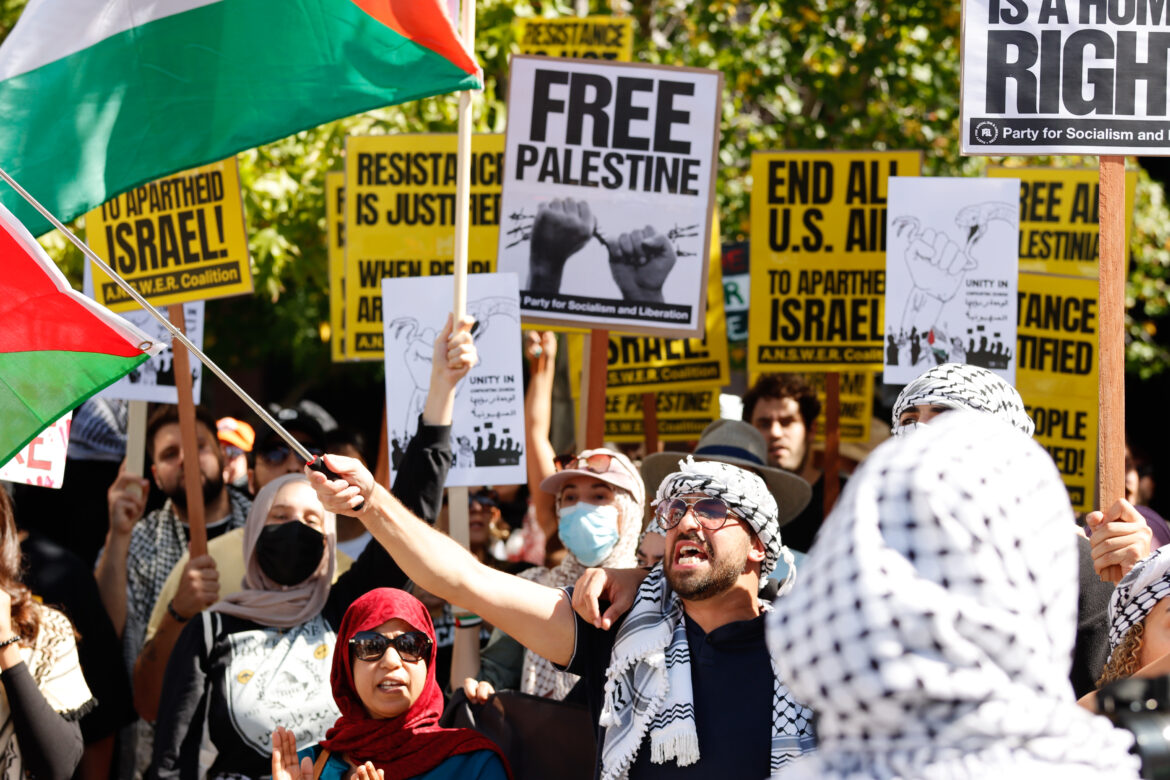
The impact and existential crisis caused by the Israeli-Palestinian conflict has rippled across the world. It has affected Muslims, the Jewish community largely due to the way activists, students and the respective governments of various countries have responded to the crisis.
In the United States, many entities, public figures, government officials and companies support Israel openly, without any retribution.
But as some decry Israel’s retaliation as an act of genocide, many pro-Palestinian allies in the United States are facing unequal treatment compared to the pro-Israel camp. There is a double-standard where free speech seemingly applies to one group more, and less to the other.
Americans on the #freePalestine side of history are facing unfair consequences for simply being against the extinction of a marginalized group of people.
On Sunday, Florida Governor and Republican presidential candidate Ron DeSantis told NBC News correspondent on “Meet the Press” that he defended his call to ban pro-Palestinian groups from state colleges as Israel expands its ground offensive in Gaza. As reported on NBCNews.com, DeSantis accused pro-Palestinian groups on campuses of having “linked themselves to Hamas.”
The New York Times reported that campuses such as Harvard University are wrestling with a free speech issue. The article said that the college “doxxed” the names of students who signed an open letter saying that Israel was “entirely responsible” for the violence that ended up killing more than 1,400 people, most of them civilians.
The consequences for supporting Palestine were instant. The students who signed the open letter have faced threats and hiring bans, according to the story.
Jeopardizing student’s futures and making them fearful of expressing support for Palestine goes completely against the 1st Amendment, and it is hypocritical.
Colleges, companies and politicians should accept that many people, in the United States and around the world, empathize with the unprecedented humanitarian crisis in Gaza.
The website Vox reports that in the United States, the Pro-Palestine protests appear to mark an increase in public support for Palestinians compared to past conflicts. Vox also reports that demonstrations including tens of thousands of people in the US, Europe, Asia and the Middle East condemn Israel’s military siege in Gaza.
Nuance is critical in the Israel-Hamas war because people can be both anti Hamas and pro-Palestine. Missouri Congresswoman Cori Bush explained that people don’t need to have a particular background to understand the necessity and morality of a ceasefire. On her website, she said that “you must not let yourself turn a blind eye to the mass murder of Palestinians, even as we strongly condemn Hamas for its appalling attack against Israelis.”
Bush also used the term “apartheid” to describe Israel’s military occupation of Palestine, and she is not alone in thinking that way. Another article from Vox reports on the ties between the Black community in the United States and Palestine. The article says that there is a rich history of links between Black American and Palestinian activists — connections that go back to Israel’s founding but have deepened over the last decade, as activists for both issues have come to see their causes as related or even explicitly linked.
Pierce’s student body is made up of a diverse demographic, which include people from both Jewish and Muslim backgrounds. There are also students who don’t identify as either, but they may show solidarity toward one side or the other, or both. Either way, two things can coexist: people can be horrified by Hamas’s attack on Israel as well as the swift Israeli military attacks on Gazan civilians.
Hypothetically, Pierce could have civil demonstrations in support of Israeli hostages and in support of the #FreePalestine movement.
No student at Pierce, nor any student from any college across the land of the free, should face consequences for demanding justice for innocent civilian life, regardless of religious affiliation or political ideology.



